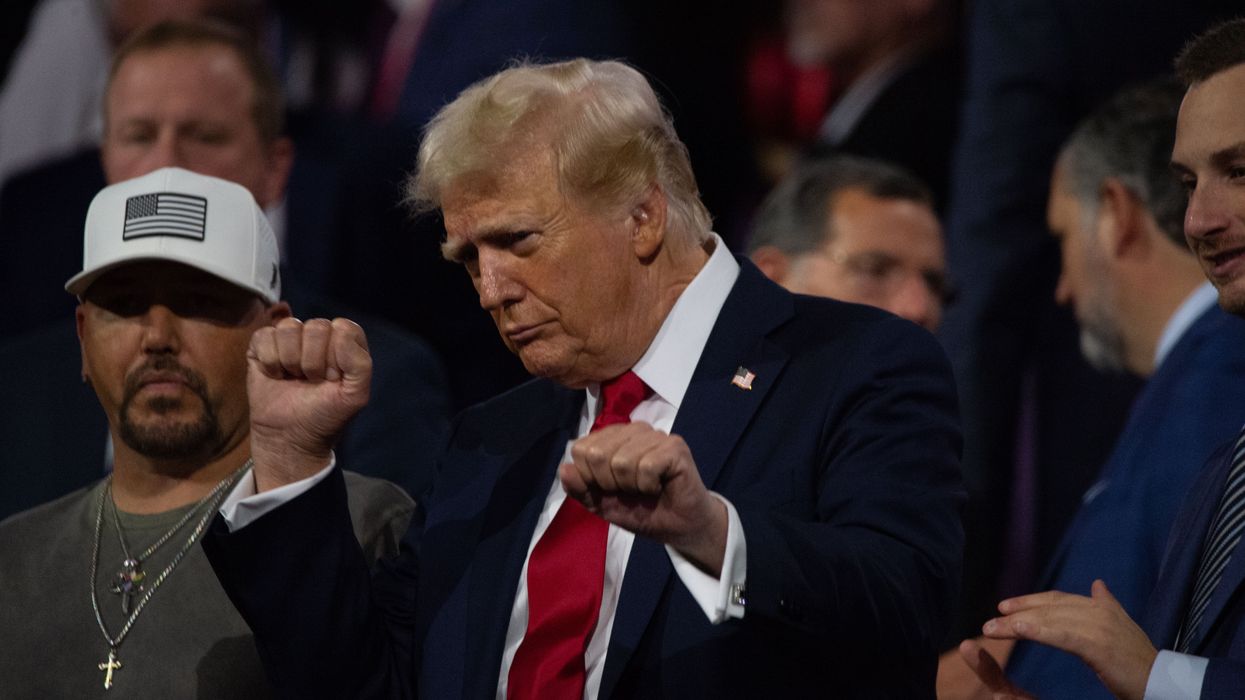The country commemorated Constitution Day this week, a day that recognizes the ratification of the United States Constitution in 1787. This op-ed will be the first in a series that outlines a cross-partisan vision to restore congressional authority, as outlined in Article I of the Constitution, and protect our system of checks and balances.
As we recognize Constitution Day this week, Americans aren’t just reflecting on the wisdom of the Founders — we are confronting a sobering question: Has Congress ceded so much power to the presidency that our system of checks and balances is at risk? From threats to deploy more National Guard members into American cities to unilateral action on trade, recent events have shown how far executive authority can be stretched. These aren’t simply policy disputes. They are direct challenges to the constitutional framework that has safeguarded our democracy for nearly 250 years.
The threats to our system of checks and balances did not emerge overnight. They are not the consequence of one man or one movement. For decades, Congress has steadily ceded its constitutionally granted authority to Republican and Democratic presidents. Each step may have seemed minor at the time, but together they have tilted the balance of power in ways the Founders warned would be dangerous.
Congress is defined in Article I — not II — of the Constitution for a reason. Our Founders understood that a concentration of power in the office of the president could lead to the type of tyranny they fought a revolution to end. They believed that a diversity of views in a representative legislature was a more dynamic and balanced way of governing. This is why the Constitution grants Congress specific and immutable powers, ensuring that no president could rule like a monarch.
Numerous important issues are competing for Americans’ attention at present. Defending the Constitution may seem abstract by comparison. However, according to a new national poll by Issue One and YouGov, Americans across the political spectrum overwhelmingly support our constitutional checks and balances. Nearly 1 in 3 voters (32%) ranked the president as having too much power as their top issue of concern, just below inflation (46%), jobs (34%), and immigration (34%). Perhaps even more striking, 79% of independents said that President Trump was going too far in trying to get his agenda passed without congressional approval.
Voters also expressed a clear preference for leaders who respect our system of government. 72% would prefer a candidate who acts with respect for institutions and rules, rather than ignoring the Constitution to act with greater speed and urgency, including nearly three-quarters of independents (73%) and a majority of Republicans (57%).
These findings point to a powerful truth: Americans value checks and balances, and they would back Congress if it stepped up to rein in executive overreach — opening the door for cross-partisan cooperation in an area where it is badly needed.
This week, Issue One has presented a reform agenda comprising six legislative proposals aimed at restoring congressional authority in key areas: trade, war powers, domestic military deployment, elections, and national emergencies. We will build on these proposals in greater depth in future installments of this op-ed series. Still, each proposal is rooted in the specific constitutional responsibilities outlined by the clauses of Article I — not partisan wish lists.
Unless we recommit to a republic based on constitutional principles, we will struggle to address the issues that voters care most about in a meaningful way. A government dominated by a single executive will inevitably drift toward serving the interests of the president, ultrawealthy donors, and special interests — not the American people.
Maintaining our republic is an active choice that each generation must recommit to. As Benjamin Franklin said on September 17, 1787, right after the Constitution was ratified, the United States was “A republic, if you can keep it.” This is why members of Congress must do their job and hold presidents accountable. Defending the Constitution is not a matter of left or right. It is about preserving self-government and ensuring that the United States remains a democracy where power ultimately rests with the people.
Nick Penniman is the founder and CEO of Issue One, a D.C.-based nonprofit focused on building bipartisan power to strengthen the foundations of American democracy.


















Marco Rubio is the only adult left in the room